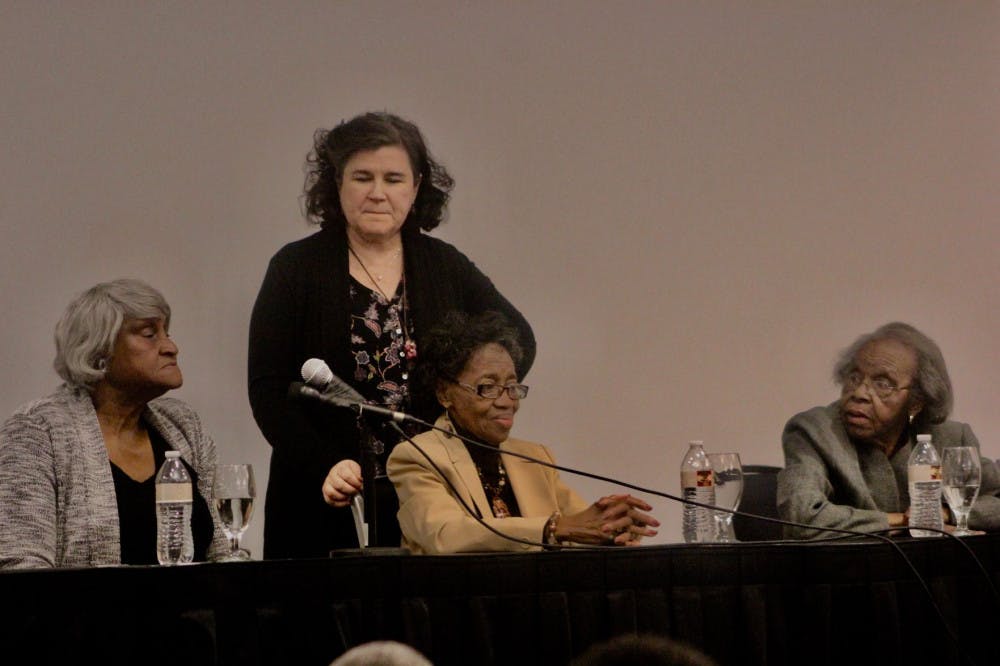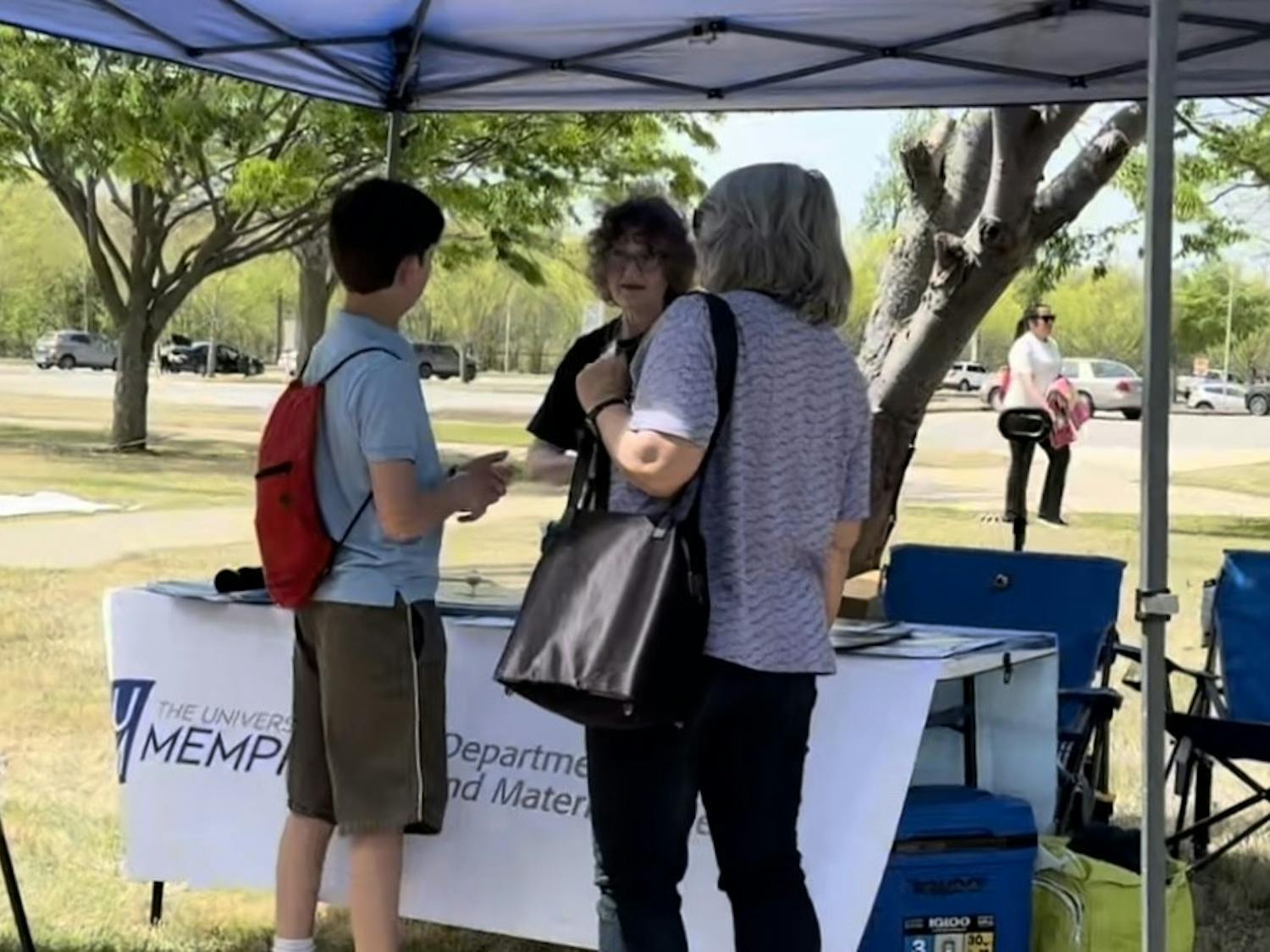
(From left to right: Jimmie Leach, Emily Yellin, Florence Ueal and Helen Turner) The documentary series entitled “1,300 Men: Memphis Strike ‘68” catalogues the accounts of the strikers and their community. During the documentary series’ screening at the UofM, the wives of a few sanitation workers talked about their struggle of standing is solidarity with their husbands and the unknown results of the strike.
Last year marked the 50 year anniversary of the Memphis sanitation strike that resulted in a 65-day work stoppage by Memphis sanitation workers and the eventual assassination of Civil Rights Movement leader Martin Luther King Jr.Â
To honor that anniversary, The Root’s released a 10-part documentary series entitled “1,300 Men: Memphis Strike ‘68,†which was created by the Striking Voices crew, a multimedia project that covers the accounts of strikers and the community around them.
The strike started because of the harsh working conditions and accidental deaths of Robert Walker and Echol Cole who were killed by a trash compactor when they were trying to find shelter from the weather.Â
At the time, Memphis assigned garbage collector duties to black workers while white people were supervisors. The harsh working conditions the garbage collectors faced led many of the workers to draw a parallel between their lives and their ancestors who had been sharecroppers and or slaves.Â
The workers went on strike for better living wages, safer working conditions and labor union recognition. Â
The documentary series covers what happened before, during and after the strike with each part covering different events and including accounts from different family members of the sanitation workers and other civil rights activists.Â
There was a screening of the documentary at the University of Memphis on March 21. The screening was followed by a panel discussion with some of the wives of the sanitation workers from the strike and the film’s producer Emily Yellin in the University Center. Yellin is the daughter of the late journalist and professor David Yellin who helped found the film and video department at the UofM. Yellin discussed how she received the footage used in her documentary.
“All of the footage you see from 1968 is the footage my father went to all the TV stations and got,†Yellin said. “So there are 25 hours of film at the University of Memphis that wouldn’t be there. It would be thrown away, so we were able to use it extensively.â€Â Â
Yellin spoke about the wives’ courage as she introduced them.
“We are celebrating these women, these wives, these matriarchs, these warriors for survival,†Yellin said. “... We are celebrating their beauty, their courage and the fullness of their humanity. We are letting them know that we see them.â€
The women recognized included Jimmie Leach, Helen Turner and Florence Ueal. Throughout the discussion, the women talked about their struggle of standing in solidarity with their husbands and the uncertainty of not knowing when the strike would end.Â
In closing, Yellin highlighted the important roles the families played in the sanitation strike.
“I thought it was really important to document the family life and to make sure that we can capture that,†Yellin said. “I was six years old when this happened, and I have memories. And I know for some of the children, those memories shaped you for life.â€




